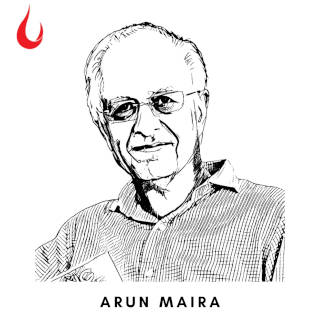[Photo by Chris Montgomery on Unsplash]
Good morning,
We revisited Daniel Goleman’s Focus: The Hidden Driver of Excellence, first published in 2013. The message is timeless, and sounds prescient now. And these passages on empathy had our attention.
“Supersensitive reading of emotional signals represents the zenith of cognitive empathy, one of the three main varieties of the ability to focus on what other people experience. This variety of empathy lets us take other people’s perspective, comprehend their mental state, and at the same time manage our own emotions while we take stock of theirs…”
“Our circuitry for empathy was designed for face-to-face moments. Today, working together online poses special challenges for empathy. Take, for example, that familiar moment in a meeting when everyone has reached a tacit consensus, and one person then articulates aloud what everyone already knows but has not said: ‘Okay, then we all agree on this.’ Heads nod.
“But coming to such consensus in an online text-based discussion requires flying-blind, without relying on the continuous cascade of nonverbal messages that in a real meeting let someone announce aloud the as-yet-unspoken agreement. We can base our reading of others only on what they have to say. Beyond that, there’s reading between the lines: online we rely on cognitive empathy, the variety of mind-reading that lets us infer what’s going on in someone else’s mind.
“Cognitive empathy gives us the ability to understand another person’s way of seeing and of thinking. Seeing through the eyes of others and thinking along their lines helps you choose language that fits their understanding.
“This ability, as cognitive scientists put it, demands additional computational mechanisms.”
Clearly, there is much work most of us have to do as workplaces adopt either hybrid or WFH, permanently.
In this issue,
- The world is not a machine
- The efficacy of mixing vaccines
- [Poem] Invictus recited by Morgan Freeman
The world is not a machine
Old economics policy frameworks view the world as a machine. And that the world can be made alright by tweaking interest rates or getting carbon prices right, says Arun Maira in his most recent essay on Founding Fuel. But the world of humans is a complex, self-adapting system and must be examined from a different framework.
To place that in perspective, he goes on to point out how the overarching principle of capitalism is at conflict with the other dominating principle of democracy. Capitalism insists on profits and ownership of assets and that governments stay away from business. Democracy insists the purpose of government is to improve the all-round well-being of every citizen. How do you begin to reconcile this dichotomy?

“An abundance of experts has become a problem because they are too narrowly focused on separate pieces of the system.”
Empower people. That means, move away from top-down, centralised solutions. India’s experiences during the lockdown last year showed the unintended, ill consequences of this approach. Mumbai and Vietnam, among a few others, have demonstrated that a more effective way to deal with a multi-faceted problem with limited resources is to disperse responsibility so that appropriate local solutions can be found by stakeholders within communities. Efficiencies come from economies of scope—from a variety of local solutions rather than from centralized scale.
Dig deeper
The efficacy of mixing vaccines

[Image by fernando zhiminaicela from Pixabay]
That India is running short of vaccines is well documented. How do we think about it going forward? To find out, Govindraj Ethiraj of IndiaSpend spoke to Polly Roy, professor of Virology at the London School of Hygiene and Tropical Medicine. Her answers to his questions offered many pointers including one on the efficacy of mixing two kinds of vaccines. Does it pose any danger?
“No, it is not dangerous at all. It is better. I already said months ago that vaccines should be mixed and matched. The data just came out from [a study of 673 people who took a dose of] AstraZeneca followed by [a dose of] Pfizer [vaccines] in Spain. And 600 people have much better [neutralising antibodies] and much higher than if you take the same type of vaccine twice. Mixing-and-matching could be very good, as has been done with the Ebola virus successfully before. So, I think that is a very good idea.”
“So instead of thinking of it as a plan B, you should actually actively try and get two doses of different vaccines?
“Yes, I think it's going to go that way, I am sure about that. Most virologists know about this. I make a lot of veterinary virus vaccines, and I know that. And I think it would be very good also for India to mix-match the two vaccines they have currently.
“So, are you saying you can have one Covishield and one Covaxin dose?
“Yes, of course. Biologically, there is no problem with that.”
Dig deeper
Invictus recited by Morgan Freeman
Invictus is an incredible poem by William Henley. And Morgan Freeman is a remarkable actor. When talking about Nelson Mandela on a show he was being interviewed on, Freeman spoke about how Mandela would turn to this poem when overcome by hopelessness. And it gave him the power to hang in there.
Out of the night that covers me,
Black as the pit from pole to pole,
I thank whatever gods may be
For my unconquerable soul.
In the fell clutch of circumstance
I have not winced nor cried aloud.
Under the bludgeonings of chance
My head is bloody, but unbowed.
Beyond this place of wrath and tears
Looms but the Horror of the shade,
And yet the menace of the years
Finds and shall find me unafraid.
It matters not how strait the gate,
How charged with punishments the scroll,
I am the master of my fate,
I am the captain of my soul.
What’s helping you get through these tough times? Send us the song, poem, quote that is your balm now. And we will share it through this newsletter.
And if you missed previous editions of this newsletter, they’re all archived here.
Bookmark Founding Fuel’s special section on Thriving in Volatile Times. All our stories on how individuals and businesses are responding to the pandemic until now are posted there.
Warm regards,
Team Founding Fuel
(Note: Founding Fuel may earn commissions for purchases made through the Amazon affiliate links in this article.)


